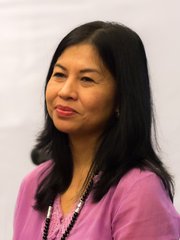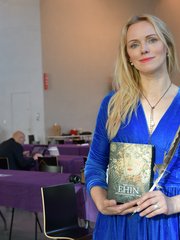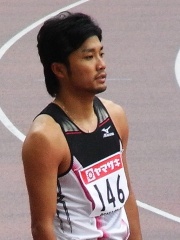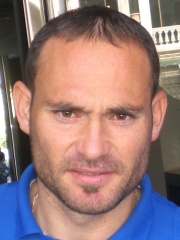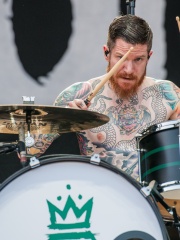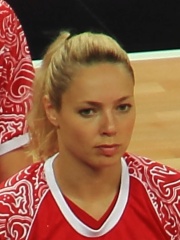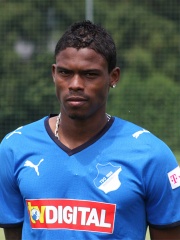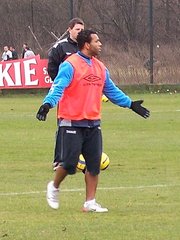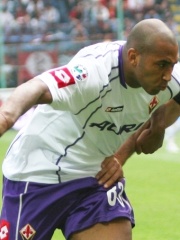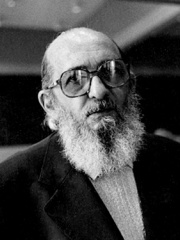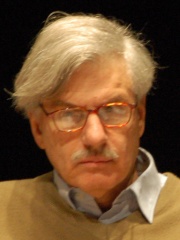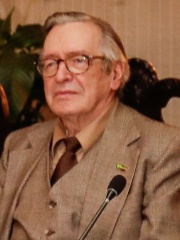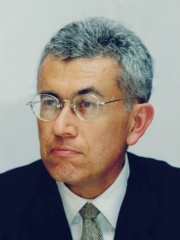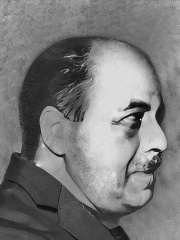Philosopher
Djamila Ribeiro
1980 - today
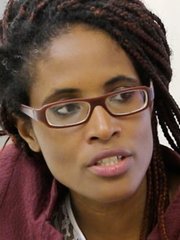
 Djamila Ribeiro
Djamila Ribeiro
Her biography is available in 14 different languages on Wikipedia. Djamila Ribeiro is the 1,275th most popular philosopher, the 1,891st most popular biography from Brazil and the 6th most popular Brazilian Philosopher.
Djamila Ribeiro is a Brazilian philosopher and feminist renowned for her work on intersectionality, race, and gender issues in Brazil. She is also recognized for her contributions to contemporary feminist thought and activism, particularly in advocating for the rights of Black women.
Memorability Metrics
Page views of Djamila Ribeiro by language
Among Philosophers
Among philosophers, Djamila Ribeiro ranks 1,275 out of 1,267. Before her are Gadis Arivia, Nigel Warburton, Julian Baggini, Pekka Himanen, Stephen Hicks, and Richard Carrier. After her are David Bentley Hart, Friederike Otto, Kristiina Ehin, and Aitzaz Hasan.
Most Popular Philosophers in Wikipedia
Go to all RankingsGadis Arivia
1964 - Present
HPI: 43.20
Rank: 1,269
Nigel Warburton
1962 - Present
HPI: 42.99
Rank: 1,270
Julian Baggini
1968 - Present
HPI: 42.93
Rank: 1,271
Pekka Himanen
1973 - Present
HPI: 42.28
Rank: 1,272
Stephen Hicks
1960 - Present
HPI: 41.82
Rank: 1,273
Richard Carrier
1969 - Present
HPI: 40.23
Rank: 1,274
Djamila Ribeiro
1980 - Present
HPI: 39.30
Rank: 1,275
David Bentley Hart
1965 - Present
HPI: 38.92
Rank: 1,276
Friederike Otto
1982 - Present
HPI: 38.36
Rank: 1,277
Kristiina Ehin
1977 - Present
HPI: 37.68
Rank: 1,278
Aitzaz Hasan
1999 - 2014
HPI: 29.84
Rank: 1,279
Contemporaries
Among people born in 1980, Djamila Ribeiro ranks 1,223. Before her are Alfredo Moreno, Shingo Suetsugu, Nino, Martin Albrechtsen, Andy Hurley, and Mikhail Chipurin. After her are Polina Smolova, Georgiy Tsurtsumia, Alexandra Petrova, Ilona Korstin, François-Louis Tremblay, and Maritza Bustamante.
Others Born in 1980
Go to all RankingsAlfredo Moreno
SOCCER PLAYER
1980 - 2021
HPI: 39.33
Rank: 1,217
Shingo Suetsugu
ATHLETE
1980 - Present
HPI: 39.33
Rank: 1,218
Nino
SOCCER PLAYER
1980 - Present
HPI: 39.32
Rank: 1,219
Martin Albrechtsen
SOCCER PLAYER
1980 - Present
HPI: 39.31
Rank: 1,220
Andy Hurley
MUSICIAN
1980 - Present
HPI: 39.31
Rank: 1,221
Mikhail Chipurin
HANDBALL PLAYER
1980 - Present
HPI: 39.31
Rank: 1,222
Djamila Ribeiro
PHILOSOPHER
1980 - Present
HPI: 39.30
Rank: 1,223
Polina Smolova
SINGER
1980 - Present
HPI: 39.30
Rank: 1,224
Georgiy Tsurtsumia
WRESTLER
1980 - Present
HPI: 39.29
Rank: 1,225
Alexandra Petrova
CELEBRITY
1980 - 2000
HPI: 39.28
Rank: 1,226
Ilona Korstin
BASKETBALL PLAYER
1980 - Present
HPI: 39.27
Rank: 1,227
François-Louis Tremblay
SKATER
1980 - Present
HPI: 39.26
Rank: 1,228
Maritza Bustamante
ACTOR
1980 - Present
HPI: 39.26
Rank: 1,229
In Brazil
Among people born in Brazil, Djamila Ribeiro ranks 1,891 out of NaN. Before her are César Santin (1981), Eric Pereira (1985), Vinicius Tobias (2004), Maurício Antônio (1992), Maicosuel (1986), and Jean Paulista (1977). After her are Reginaldo (1983), Pedrinho (1998), Mattheus Oliveira (1994), Rômulo (1990), Sílvio José Canuto (1977), and Junior Dutra (1988).
Others born in Brazil
Go to all RankingsCésar Santin
SOCCER PLAYER
1981 - Present
HPI: 39.43
Rank: 1,885
Eric Pereira
SOCCER PLAYER
1985 - Present
HPI: 39.42
Rank: 1,886
Vinicius Tobias
SOCCER PLAYER
2004 - Present
HPI: 39.41
Rank: 1,887
Maurício Antônio
SOCCER PLAYER
1992 - Present
HPI: 39.40
Rank: 1,888
Maicosuel
SOCCER PLAYER
1986 - Present
HPI: 39.37
Rank: 1,889
Jean Paulista
SOCCER PLAYER
1977 - Present
HPI: 39.35
Rank: 1,890
Djamila Ribeiro
PHILOSOPHER
1980 - Present
HPI: 39.30
Rank: 1,891
Reginaldo
SOCCER PLAYER
1983 - Present
HPI: 39.28
Rank: 1,892
Pedrinho
SOCCER PLAYER
1998 - Present
HPI: 39.28
Rank: 1,893
Mattheus Oliveira
SOCCER PLAYER
1994 - Present
HPI: 39.26
Rank: 1,894
Rômulo
SOCCER PLAYER
1990 - Present
HPI: 39.26
Rank: 1,895
Sílvio José Canuto
SOCCER PLAYER
1977 - Present
HPI: 39.26
Rank: 1,896
Junior Dutra
SOCCER PLAYER
1988 - Present
HPI: 39.26
Rank: 1,897
Among Philosophers In Brazil
Among philosophers born in Brazil, Djamila Ribeiro ranks 6. Before her are Paulo Freire (1921), Michael Löwy (1938), Olavo de Carvalho (1947), Roberto Mangabeira Unger (1947), and Vicente Ferreira da Silva (1916).
Paulo Freire
1921 - 1997
HPI: 73.10
Rank: 1
Michael Löwy
1938 - Present
HPI: 59.81
Rank: 2
Olavo de Carvalho
1947 - 2022
HPI: 59.26
Rank: 3
Roberto Mangabeira Unger
1947 - Present
HPI: 55.33
Rank: 4
Vicente Ferreira da Silva
1916 - 1963
HPI: 52.64
Rank: 5
Djamila Ribeiro
1980 - Present
HPI: 39.30
Rank: 6
